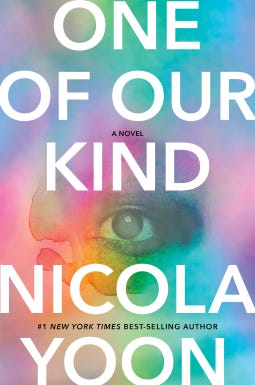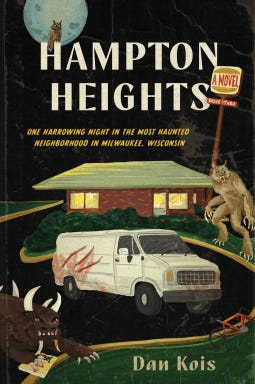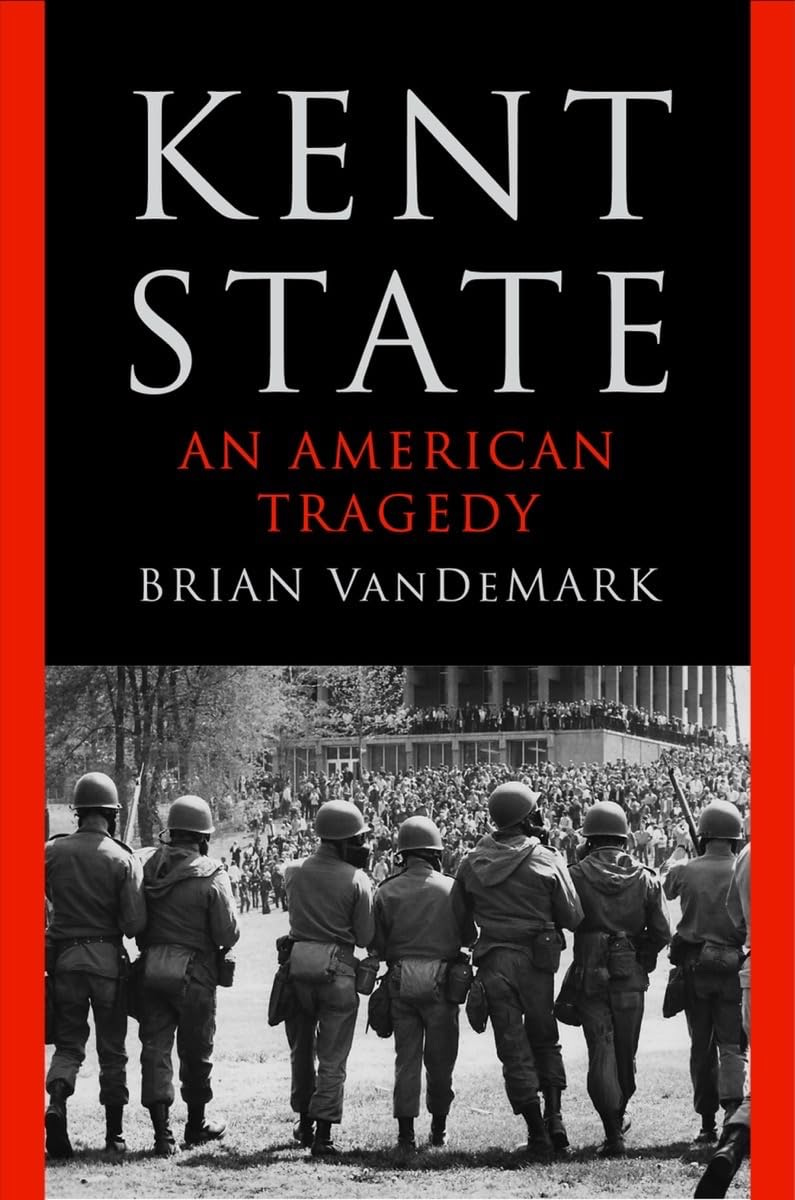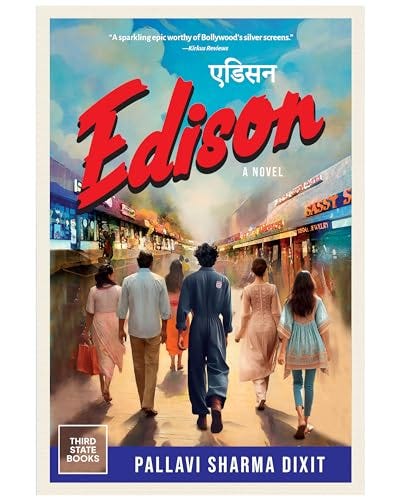IP Picks🔎: Recent Faves Still Available
A courtroom drama, a famous tragedy, a Bollywood rom-com, a YA adventure and more! All are screen-worthy and still up for grabs . . .

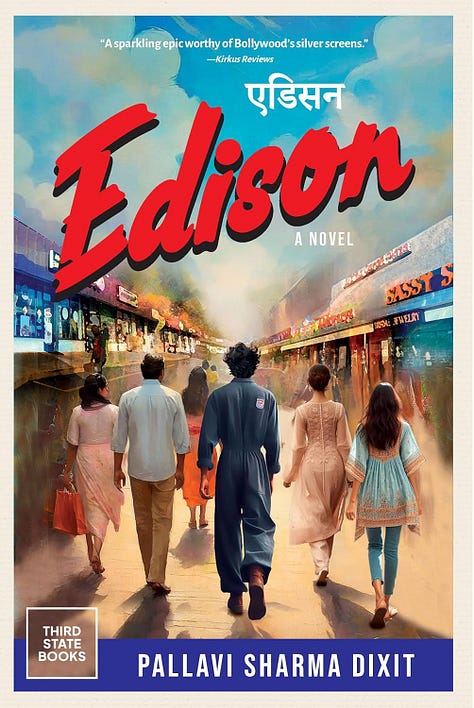
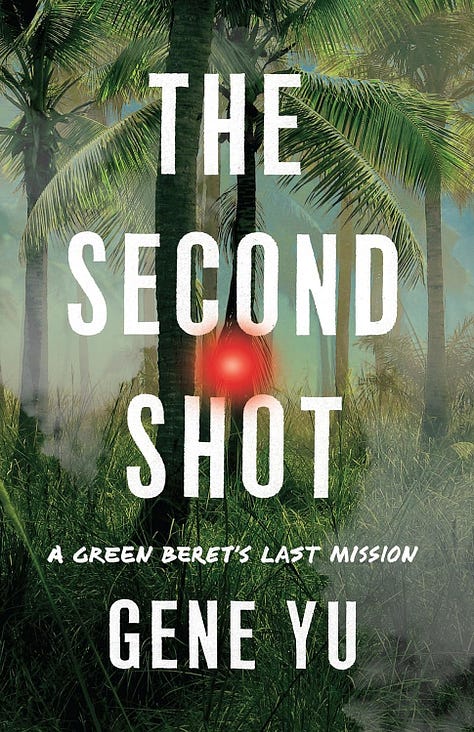


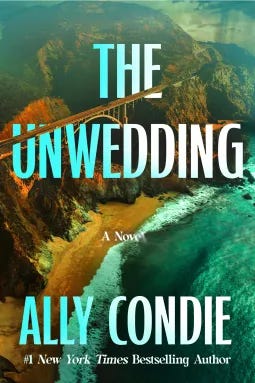
We haven’t done this in a while, so I thought it would be fun to highlight some of my recent picks that are still available to be snapped up. For those of you who aren’t paid subscribers to The Optionist, this week’s column will give you a free taste of what you can find behind the paywall every week and for paid subscribers here’s a second look at some titles you might have overlooked.
August seems like the perfect time to dig into the archives here at HQ. After all, it’s summer reading season, and who doesn’t want to catch up on that TBR pile that’s only going to grow bigger as we move into the fall? Even if you’re not planning on getting away before Labor Day, hopefully things are quiet enough for you to give these picks a look.
Finding good IP takes a lot of time and legwork. The Optionist is your shortcut to success. I comb through all the new book releases, listen to an unhealthy number of podcasts, read an ungodly number of magazines and newspapers (my base list is almost at 50!) and hunt for overlooked backlist titles in order to curate an essential list of available IP each week that lands in your inbox every Friday at noon Pacific.
There’s so much good stuff that gets covered in The Optionist each week. Our recommendations take into account such things as character arcs, plotlines, world-building, the author as well as competing projects in order to give you all of the information you need. Not only do I spotlight material that you may want to develop, but I also serve up a quick guide to what’s going to be landing on your friends’ and competitors’ desks.
With so many new people signing up for the free, summary-only version of The Optionist in the last few months, I want you to see what’s available to paid subscribers. So if you like what you see, check out our special introductory rate for the first three months for new subscribers.
Below you’ll find 10 of my favorite picks from this year. Of course, some have already been scooped up, but there’s still plenty of great potential projects here, including rom-coms, true-crime thrillers, courtroom dramas, YA adventures and other genres. I tried to include a little something for everyone. The writeups appear as they originally ran in The Optionist, but in a few places I’ve added links to reviews and other call-outs. Enjoy!
The full lineup for today features:
A dystopian thriller in the vein of Get Out
A YA adventure that’s Stand by Me meets Stranger Things
A true-life thriller about a former Green Beret who rescues friends captured by terrorists in Malaysia
A true-crime drama that’s Crazy Rich Asians reimagined as a scandalous murder
A historical drama about the Kent State tragedy
A courtroom drama that feels like a modern spin on A Civil Action
A magical realist drama centered on a woman who can’t die so long as she keeps moving
A Bollywood-infused rom-com that’s Mamma Mia! meets Waiting for Guffman
A murder mystery set at a posh, White Lotus-esque resort in Big Sur
A Southern noir procedural that’s Justified with a Black female lead
Grounded Dystopian/Thriller
For fans of The Stepford Wives and Get Out
Potential logline: An upwardly mobile Black family moves to a utopian community that promises to insulate them from the worst aspects of racism (police harassment, etc.) and discover that all is not what it seems.
One of Our Kind by Nicola Yoon (Knopf, June 11) The publisher’s Get Out-meets-The Stepford Wives pitch definitely caught my attention. Those are two favorites of mine. Even better, the pitch is accurate. One of Our Kind takes the plot and ‘70s vibe of Stepford and gives it a contemporary racial spin that really works. Stepford was far more political than most people gave it credit for at the time. It was essentially a feminist cri de coeur in the guise of a paranoid conspiracy thriller.
I suspect that Yoon’s novel will make a lot of people uncomfortable (both Black and white) and generate a lot of conversation and think pieces. But in this marketplace you have to court a little controversy to put fannies in the seats (see: Alex Garland’s Civil War). I know I’m focusing on the book’s water-cooler buzziness, but I think this could really work on two levels: On the surface, it’s a creepy thriller; on a slightly deeper level, it’s a commentary on race in America (at least for those who want to engage with it on those terms).
The basic plot finds a successful Black couple, Jasmyn and King Williams, moving their family to Liberty — an idyllic, all-Black planned community near Los Angeles. Jasmyn and King are both SJW types. She’s a public defender; he’s a venture capitalist who mentors at-risk youth. Both are emotionally scarred from interactions with the police. Jasmyn expects to find like-minded people in Liberty. But instead, she finds that the residents are more interested in their own comfort and using the safety of Liberty (and its spa treatments) to escape the world. Jasmyn is unsettled by her new neighbors’ complacency. She wants to discuss racism and inequality and the trauma they’ve inflicted on Black people in America. Her neighbors? Not so much. The more she looks around, the more she thinks things don’t add up. Then she discovers the horrific secret of the community’s wellness center.
This is a provocative story that uses the tropes of ‘70s suburban fiction and dystopian horror to examine the psychological impact of racism. In particular, the price of Black excellence and whether success can ever trump race. There’s a long tradition in African American literature, film and TV exploring this theme, from Invisible Man to Black-ish. I’ve noticed that some early readers felt that the book reduced the experiences of Black Americans to trauma, while others think it’s an authentic depiction. I can’t recall a recent book that’s had such polarizing reactions ahead of its publication — something I see as a positive. Even the critics were passionate. And real passion is hard to manufacture. But that’s why I think this is worth developing. REPS: Kassie Evashevski/Anonymous Content
Update: A NYT review: “A slim book with short chapters and a freight-train feel [that] fits in with a recent wave of Black social horror.”
Comedy/Horror/Coming of Age
For fans of Stranger Things and Stand by Me
Potential logline: In 1987, six tween paperboys have a night of supernatural adventure while competing to see who can sign up the most new customers.
Hampton Heights by Dan Kois (Harper Perennial, Sept.) Kois' novel about six paperboys encountering the supernatural during one night in 1987 is a charmer. It's a mix of Stranger Things and Stand by Me with a twist of Good Boys. I know the logline evokes the ill-fated adaptation of Brian K. Vaughan's beloved Paper Girls, but I don't think that should put people off of tackling this one. The other comps I rattled off suggest that there's an audience here even if that one fizzled.
The setup has a group of kids competing to sign up new subscriptions to win a cash bonus for the holidays and a dinner at Burger King. The specificity of that last bit and how much of an incentive it is to a bunch of tween boys is an example of why this book works. All of these characters are trying to figure out their identities — racial, sexual, class, nationality — and how they fit into the wider world. They're dealing with the fear and excitement that comes with this stage of growing up — the moment when you’re still caught between being a kid and being a teenager (and all the scary/fun stuff that comes with that, like girls). The boys are divided into three pairs and each of them has their own separate adventure (their manager, Kevin, has his own too). Put together, the various threads evoke classic teen anthology comedies. The conclusion at Burger King, where all of the characters come together again, is perfectly done. It reunites the separate adventures and beautifully evokes that universal end-of-night experience where you’re trading stories and catching up with friends. It’s exactly the satisfying ending I wanted.
This is a cleverly constructed story. Slate writer Kois, who helped start NY Mag's Vulture and also wrote for Television Without Pity, knows what he's doing by drawing on classic storylines and character archetypes and remixing them. This is pitched as a horror comedy, but the horror is pretty tame. This is more paranormal adventure than straight horror. It packs more sweetness than scares, and it pulls it off. This also strikes me, like Good Boys, as a story that would work across more than one age group — speaking to the younger demo with questions that matter to them and playing into an older demo’s nostalgia.
I see this as a movie more than a series in the way the story is constructed (it also helps you avoid the awkwardness of the kid actors growing and going through puberty over the course of several seasons). I have lots of enthusiasm for this one. REPS: Alia Hanna Habib/The Gernert Group
Update: A pre-publication review flags Kois’ “delightfully immature and authentic dialogue . . . refreshing lack of cynicism, and . . . genuinely unnerving threats” that “elevate an engaging and eerie adventure.”
Thriller/True Crime
For fans of Extraction
Potential logline: A former Green Beret rescues a family friend who’s being held by terrorists in the Malaysian jungle.
The Second Shot: A Green Beret's Last Mission by Gene Yu (Little A, Oct.) This is an awesome story that combines an adventure-thriller with a modern take on race and ethnic identity.
The hero of the story is Gene Yu, who was born in Concord, MA, to a politically connected Taiwanese family (I mention Concord simply because it’s my hometown). At 17, he enrolled at West Point, where he would face challenges and discrimination. He went on to become a Green Beret (how he almost got kicked out for sneaking pizzas during a survival mission is a terrific story), served for eight years (many of those in war zones), and retired as a captain.
In 2013, a few years out of the military and trying to figure out his next chapter, Yu was in Taiwan promoting his first memoir when he learned that some family friends had been kidnapped by terrorists in Malaysia. Yu recruited some Filipino soldiers and private military contractors and staged a daring rescue operation. The full story of this mission hasn't been revealed until now, but it's a doozy that involves tense negotiations, false identities and Filipino soldiers defying orders from their own government to stand down. Three of those soldiers died, but as a tribute to their bravery, Yu convinced the Taiwanese government to award them their highest military honor, making them the first foreigners to receive it. As a thriller, this story definitely begs for the big screen.
Pair it with some flashbacks to Yu's backstory as the "young Asian kid in America struggling to fit into a dominant white culture" who decides to defy stereotypes about Asian American masculinity not only by going to West Point, but becoming a Green Beret in the process, and you have a real winner. Something tells me that if you cast Simu Liu as Gene Yu, it could transform him from merely a superhero to a full-fledged action-adventure capital M, capital S Movie Star. Take my money now for this one. REPS: Orly Greenberg/UTA
True Crime
For fans of Crazy Rich Asians (but gone bad) and true crime
Potential logline: The murder of a young socialite influencer in Hong Kong exposes the city's seamy underbelly and the corruption of its elites.
Hong Kong Confidential: Fame, Family, Fortune, and Murder at the Close of a Golden Era by Eric Wilson (Grand Central, TBD) Book proposals are usually too premature for The Optionist to consider. It's hard to evaluate them from a buyer’s perspective and it's even harder to gauge the market from a seller’s perspective. But occasionally one will catch my attention, like this one about last year’s murder of socialite influencer Abby Choi in Hong Kong. Think of it as Crazy Rich Asians gone very, very wrong. The proposal is already getting attention around town.
Choi was the glamorous young wife of Chris Tam, the scion to a $300 million restaurant empire. Her husband's wealth and status vaulted her to the top echelon of Hong Kong society. But her path there was not straightforward. She grew up middle-class before her mother married a wealthy mainland businessman when she was 15. When she first encountered the well-to-do at her posh high school, she felt like an outsider. Then, to her mother’s disappointment, she married a bad boy named Alex Kwong, whose father was a powerful (and most likely corrupt) senior police officer. They had two kids, but the marriage didn’t last long. And yet, after the couple split up, Abby remained close to Alex and his family, even employing his brother as a chauffeur.
Fast-forward to February 2023, when Choi was found dead just as things were better than they'd ever been. A week earlier, she had appeared on her first magazine cover, a big coup for the rising influencer. Her death in a neighborhood on the outskirts of the city was gruesome. She had been dismembered — part of her was found in a fridge, part in a cooking pot. Hong Kong police quickly zeroed in on Abby’s ex’s family, the Kwongs, and six of them are now on trial for her murder. On the surface, the motive appears to be financial (a dispute surrounding homes that Abby bought for her ex’s family), but the arrest revealed that Alex, her ex, had been engaged in other thefts while his father had been accused of rape. It also appears there were ties (potentially illegal ones) between the Tams and the Kwongs (though her widow, Chris, has denied any involvement by him or his family in Abby’s death).
As you can see, this is a juicy true-crime mystery. And on top of the ins and outs of the case, Wilson, a longtime fashion journalist in Hong Kong, intends to layer on an exploration of the underbelly of influencer culture. Or as he puts it: “Illustrating the dark nexus where social media, the luxury industry, and unchecked greed and ambition meet; the jealousies and bitterness that arise from the pursuit of fantastic wealth; and what can happen when a young woman loses herself in her own quest for social position and fame.”
Wilson also wants to make the city itself a character. He describes Hong Kong as “proper and polished on the surface, but often wildly outrageous and dark just beneath.” It is a city of fantastic wealth disparities struggling to retain its unique culture under Communist rule, lest it becomes just another Chinese city. His Hong Kong evokes Berlin on the eve of Nazi rule (which has always been cinematic catnip).
The legal case is ongoing, so it's hard to say when it will wrap up. There’s also some question about whether any of the players will talk to Wilson. Still, he has such a strong grasp of Hong Kong's culture and social life that I think he can pull off a great book even if he has spotty access.
Crazy Rich Asians-gone-bad feels like the right pitch for this engrossing true-crime murder that explores a social milieu that's little understood in the West. Of course, a murder in Hong Kong raises questions about whether Chinese authorities would allow an adaptation to be shown on the mainland (or filmed in the city, for that matter). But I think this could be a hit everywhere else. The story is so rich and immersive that I would absolutely do this as a limited series. The book proposal is long — nearly 100 pages! — so it gives a good sense of what the book will be like. REPS: Aevitas
Drama/History
For fans of Medium Cool
Potential logline: The 1970 Kent State tragedy as told through the stories of the student protestors and the National Guard soldiers who fatefully clashed there.
Kent State: An American Tragedy by Brian VanDeMark (W.W. Norton, Aug.) When I originally wrote this, the only news story that had been able to compete with the Trump trial at the time was the campus protests about Israel, Palestine and the war in Gaza. It was a tinderbox that had been smoldering since the October attacks, but it turned into a full-on blaze at Columbia University when the school had protesters arrested and threatened with suspension or expulsion.
The handling of the demonstrations at Columbia were particularly complicated because of the forceful way that the school dealt with anti-Vietnam War protests in 1968. Also, it raised the specter of Kent State in 1970, when four unarmed students who were part of a protest against the U.S. invasion of Cambodia were shot dead by members of the Ohio National Guard.
I had Brian VanDeMark’s new history of that tragedy on my to-do list for later in the year. But I've long thought that a new take on Kent State would resonate with today’s activism-minded generation, while also serving as a cautionary tale about the dangers of a law-and-order overreaction. I pushed it up because of what was happening on college campuses and how timely it felt.
There are already been a bunch of docs about Kent State, including one in 2000 that won an Emmy and another in 2015 called The Day the ‘60s Died, as well as a chapter in Ken Burns' 2017 PBS miniseries, The Vietnam War. But there have only been a handful of scripted adaptations — most notably, the 1981 NBC docudrama Kent State and the 2000 ABC limited series The '70s, which opens with the campus shooting and then dramatizes how a handful of students were subsequently affected by the events.
A history professor at the United States Naval Academy in Annapolis, VanDeMark manages to bring new depth and layers to the Kent State tragedy, treating both the soldiers and the slain students with empathy. He’s done tons of research and has managed to track down some of the surviving guardsmen to help tell the full story. This approach makes it perfect for a limited series that focuses on the days and weeks leading up to May 4, 1970, fleshing out one side’s passionate opposition to the war and the other’s belief that they were being sent in to maintain order, culminating with the tragic outcome of those two sides violently clashing. You could balance that approach with a look inside the halls of power, where a combination of foolish decisions and exaggerated rhetoric demonizing the protestors set this terrible event in motion. It’s an urgent warning for politicians hungry for the political theater of a crackdown on demonstrators without any awareness of how dangerous it could be.
Not only could this story inspire a politically passionate younger audience, it could also make a point about how what divides us is less important than what we share. REPS: Michael Carlisle/Inkwell
Update: The LAT called it “a meticulous, pain-filled history of the senseless slaughter.”
Legal Thriller/True Crime
For fans of A Civil Action
Potential logline: A ‘hillbilly lawyer’ takes on the powerful Tennessee Valley Authority seeking justice for workers who were poisoned in a historic $1 billion coal disaster.
Valley So Low: One Lawyer's Fight for Justice in the Wake of America's Great Coal Catastrophe by Jared Sullivan (Knopf, Oct.) A small-town lawyer goes up against the big, bad corporation that has been poisoning ordinary folks. That sort of David-vs.-Goliath formula almost always turns out well. If executed properly, it can be outstanding. This one, featuring self-proclaimed ‘hillbilly lawyers,’ has the goods to be one of the great ones.
The basic plot pits small-town personal injury lawyer Jim Scott against the powerful Tennessee Valley Authority. For a half-century, the TVA burned 14,000 tons of coal every day. Then in 2008, a huge wave of coal sludge broke free and ended up covering 300 acres of land. The cleanup ended up costing $1 billion. More than 50 workers were poisoned by toxins during and after the incident.
Scott and his small team discovered that the TVA had provided inadequate safety precautions, attempted to hide evidence and retaliated against workers who complained. The agency hired powerful, big-city lawyers who outmanned Scott in terms of resources and outclassed him in terms of highfalutin’ degrees. Meanwhile, Scott became incredibly close to some of the victims.
There are so many great elements here, from an epic disaster to a classic underdog lawsuit to crises that almost derail the case. Hell, I could even write this screenplay! (Kidding!) The story is so screen-friendly that it actually got optioned a couple of times in the book-proposal stage. But for lots of reasons (like Covid), it stalled. This book is too good to sit on the sidelines for long. Someone's gonna pick it up for sure. And before publication, I bet. REPS: Elyse Cheney/The Cheney Agency
Drama/Magical Realism
For fans of The Curious Case of Benjamin Button and The Age of Adaline
Potential logline: A mysterious disease gives a woman immorality, but only if she keeps moving or else she’ll die.
A Short Walk Through a Wide World by Douglas Westerbeke (Avid Reader, April) Westerbeke, an aspiring screenwriter (four optioned, none produced) and librarian, debuts with a magical realist tale that compares to The Invisible Life of Addie LaRue and How to Stop Time (both of which are under development — the former with eOne and the latter with Benedict Cumberbatch and StudioCanal).
The book is set around 1900. Here’s the thumbnail: When she was nine, Aubry Tourvel contracted a mysterious malady that caused her to start bleeding to death. The only thing that saved — and continues to save — her is to keep moving. She cannot stay in one place for more than a few days or return to somewhere she's been before. As you can imagine, the travelogue here is awesome (which could make it mighty expensive to produce): Belle Epoque France, the African desert, the Himalayas. Aubry is helped in her travels by a mysterious network of underground libraries that can transport her around the globe — enter in one spot, exit in another.
We meet Aubry in the early 1900s when she's in her thirties, but the story is told in a nonlinear fashion, pinging back and forth to different points in her life. There's also another interesting twist: Aubry happens to be famous. Her condition is known around the world so she becomes a curiosity to everyone she meets. I really liked both the high-concept premise and the execution here, as well as the underlying ideas such as ‘What is home?’ and the value of the journey over the destination. Like many stories in this vein, the ending (and any attempt to fully explain the premise, really) will be a bit of a let down. I like to think of this as “The Lost Problem.” But I was here for the ride most of all.
It strikes me that this might work best as a movie, compressing the story down. I could also imagine broadening it out to a series in which each episode takes place in one location. But you know what? That kind of seems off to me. Partly because creating all of these locations on a week-to-week basis would be hard and end up either looking cheesy (like a bad Star Trek episode) or being prohibitively expensive. Also, I could see it devolving into a lesson-of-the-week show like Highway to Heaven or Quantum Leap, which would take the focus away from Aubry's journey, which should be the center. I think the recent TV adaptation of The Time Traveler’s Wife shows that stories like this work better as movies. REPS: Jason Richman/UTA
Update: This was a book-of-the-month club pick, a bestseller and a personal fave of mine.
Rom-Com
For fans of Mamma Mia! meets Waiting for Guffman
Potential logline: When Prem, a recent Indian immigrant who pumps gas, is challenged to prove his worth by the father of the girl he pines for, he decides to stage a Bollywood musical in their NJ town.
Edison by Pallavi Sharma Dixit (Third State Books, now out) This novel is a real charmer, adding new life to some classic plot tropes and adding a Bollywood twist to produce something both relatable and unique.
In 1986, a movie-obsessed twentysomething named Prem runs off to America to escape the suffocating expectations of his business-mogul father and dreams of hooking up with an American director to launch his career. Things don’t go quite as planned. He ends up in Edison, NJ, home to a sizable Indian-immigrant community, where he takes a job pumping gas until he can figure out how to get his plans back on track. There, he falls head over heels for the beautiful and ambitious Leena, whose father, Hermant, owns Edison’s first Indian grocery store. Unimpressed with Prem and his prospects, Hermant says he will give his blessing if Prem can earn one-million-and-one dollars. With the help of some local aunties (who are charmed by him), Prem sets out to put on a live stage show in Edison featuring some of Bollywood’s biggest names in the hopes that it will impress Hermant and win over Leena. You can guess how this all turns out . . . but the journey to get there is a delightful screwball romp.
To start, an ‘80s-period setting is always a plus, whether you grew up during that decade or are just into nostalgia. There are also Bollywood numbers here that would look great on screen and be super fun to watch. Slacker movie-nerd Prem is an appealing main character and Leena, who’s fleshed out as a real person, makes a nice foil. Like Crazy Rich Asians — I know it’s over-comped, but bear with me — this works in the way it balances the universal with the culturally specific. Dixit grew up in Edison in late ‘80s/early ‘90s and it comes across on the page. Executed well, I think this could be really enjoyable and broadly appealing as a movie. I loved it. REPS: Charles Kim/Third State
Update: A rave review from this blogger: “A Bollywood-style love story brimming with song and dance, action and comedy, a love triangle, an angry parent, an evil villain, and cameos by real Bollywood stars.”
Mystery/Drama
For fans of White Lotus
Potential logline: Recent divorcee Ellery’s solo vacation at a posh Big Sur resort goes awry when another guest, a groom, turns up dead and a mudslide cuts them off from the world.
The Unwedding by Ally Condie (Grand Central, June) Ellery Wainwright was looking forward to spending her 20th anniversary with her husband, Luke, at a luxe Big Sur resort. Then he announced he wanted a divorce. Going alone (while he and his new girlfriend watched the kids) wasn't really what she had on her bingo card, but what the heck? Rubbing salt in the wound, there's a huge wedding going on at the resort at the same time. Here's where things get fun: She discovers the groom floating dead in the pool and a mudslide stops traffic in both directions before the police arrive. Then another guest turns up dead.
Closed circle and locked-room mysteries have been having a bit of a renaissance since at least Knives Out (see also: Kenneth Branagh’s Agatha Christie revivals). This one has a lot of White Lotus energy as well — posh resort, obnoxious guests, a murder — but the murder is more central to the story here than in the HBO hit. Ellery is a winning main character — very relatable in who she is, the situation and her “screw it, I’m going” decision — and skewering the rich (as well as bridezillas) is always fun.
One reason why I liked this over similar stories is the way that Ellery's investigation into the murder is paralleled by her personal journey of self-discovery about the end of her marriage, why it happened and how she can move on from it. That adds a nice layer of depth to the story. REPS: Kassie Evashevski/Anonymous Content
Update: This was a Reese’s Book Club pick.
Procedural
For fans of Justified
Potential logline: In 1980s Mississippi, a Black cop-turned-PI and her white partner investigate the murders of a real-estate developer and an amateur hit man and their links to the Dixie Mafia.
The Queen City Detective Agency by Snowden Wright (William Morrow, Aug.) Southern Noir crime fiction is one of those buzzy publishing categories that’s been getting a lot of attention from me lately for its adaptation potential (see also: Dark Academia). Wright, whose first two novels skewed literary, has a winner here with a setting and main characters that could sustain a procedural series for a long time.
First, the world: the down-on-its-luck Mississippi city of Meridian, which was the largest city in the the state until 1930. Now, it’s just a pit stop between Atlanta and New Orleans, especially for the Dixie Mafia. The time is the 1980s, specifically New Year’s 1985, on the eve of Reagan’s second inaugural. But the promise of “Morning in America” has eluded Meridian. It’s a moment when the gains of the Civil Rights Movement are profound but incomplete and still very fresh. (To get a sense of this, consider that in places like Meridian, the first fully integrated high school class — that is, one that entered an integrated kindergarten — only graduated in maybe 1981 or 1982, nearly 30 years after Brown struck down school segregation.) Next, the main characters: African-American cop-turned-PI Clementine Baldwin and her white partner Dixon Hicks. I can see lots of actors having fun with Baldwin, who is a bourbon-swilling cynic with a love/hate relationship with her hometown and has some fun repartee with Hicks.
The plot finds Baldwin hired to find out who killed Turnip Coogan while he was awaiting trial for the murder of developer Randall Hubbard. Turnip’s mother doesn’t think his rooftop fall was a suicide as the police are claiming. On top of that, Hubbard’s wife, who hired Turnip to kill him but then canceled the job, wants to know who actually killed her husband — a request that makes Baldwin a target of the real killer.
Mississippi in the ‘80s makes for a compelling change-up from the usual procedural settings, and Meridian is a place that is big enough to believably have a lot of crime but still small enough to be a place where everyone seems connected to each other. The racial dynamic is fertile ground for writers, as is the stagnant economy which makes crime one of the few professions in the area that pays reasonably well. To me, the best version of this would look like a Southern-set, Black female-led, somewhat-darker-in-tone version of Justified. REPS: Eric Reid/WME
Update: This early review from an online book site captures what I liked about it as well: “Unexpectedly dark in places and just as unexpectedly funny in others, this book is a strong piece of Southern noir.”
That’s a wrap, folks. We’ll see you in a week for a regular edition of The Optionist.





